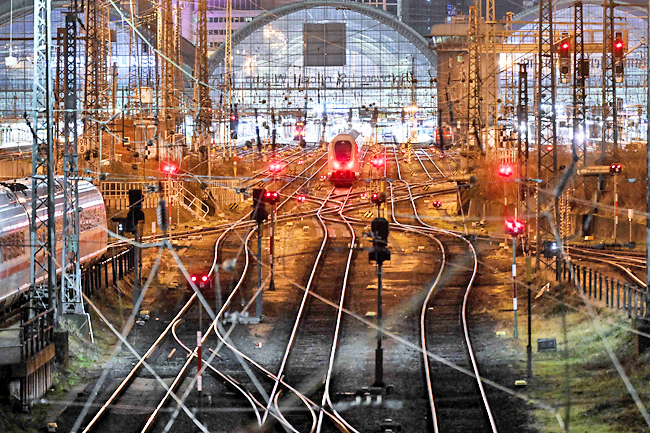BERLIN (AFP) – German train drivers began yesterday their longest-ever strike, piling on travel misery for thousands of passengers in an escalating industrial dispute that economic experts warn could cost the economy up to EUR1 billion.
Transport Minister Volker Wissing has slammed as “destructive” the six-day industrial action that heaps further pressure on supply chains that are already facing disruption because of attacks by Yemen’s Houthi rebels on shipping via the Red Sea.
The prolonged action “is a strike against the German economy”, said Deutsche Bahn (DB) spokeswoman Anja Broeker, noting that cargo traffic handled by the service include supplies for power plants, refineries.
“DB Cargo will do everything to secure the supply chain, but it’s clear that there will be some impact,” she added.
The walkout called by the GDL union runs from 0100GMT yesterday through to 1700GMT on Monday for passenger traffic while the strike for freight trains began earlier on Tuesday.

Not only long-distance trains but also suburban services, some of which like Berlin’s are operated by DB, are affected, just over a week after the last round of walkouts between January 10 and 12.
The fourth strike since November 2023 left passengers scrambling to rebook or cancel their plans, and sparked warnings of huge costs to the state and industry at a time when the German economy was already ailing.
DB estimated each strike day to cost “a low two-digit million figure”, but industry experts warned the impact on the economy would be far bigger.
Michael Groemling of Cologne’s Institute for Economic Research said nationwide train stoppages can cost up to EUR100 million a day to the economy, but warned that the impact “may not rise linearly in a strike that lasts several days, but partially multiplies”. Given the disruptions with sea freight over the Huthi attacks, as well as issues on road transport, “rough estimates suggest that in extreme cases, this strike can cost up to EUR1 billion”.
Wissing slammed the German Train Drivers’ Union (GDL) for refusing to negotiate during the strike.
“I find that it is unreasonable vis-a-vis train travellers that the trains are standing there blocked, while one’s not at the same time sitting at the negotiations table,” said the transport minister.
But the union said it had rejected the Deutsche Bahn’s “third and allegedly improved offer” because bosses had shown “no sign of a willingness to reach an agreement”.
The GDL is seeking higher salaries to compensate for inflation, as well as a reduced working week from 38 to 35 hours with no loss in wages, arguing that it needed to make train driver jobs “more attractive” to young people.










